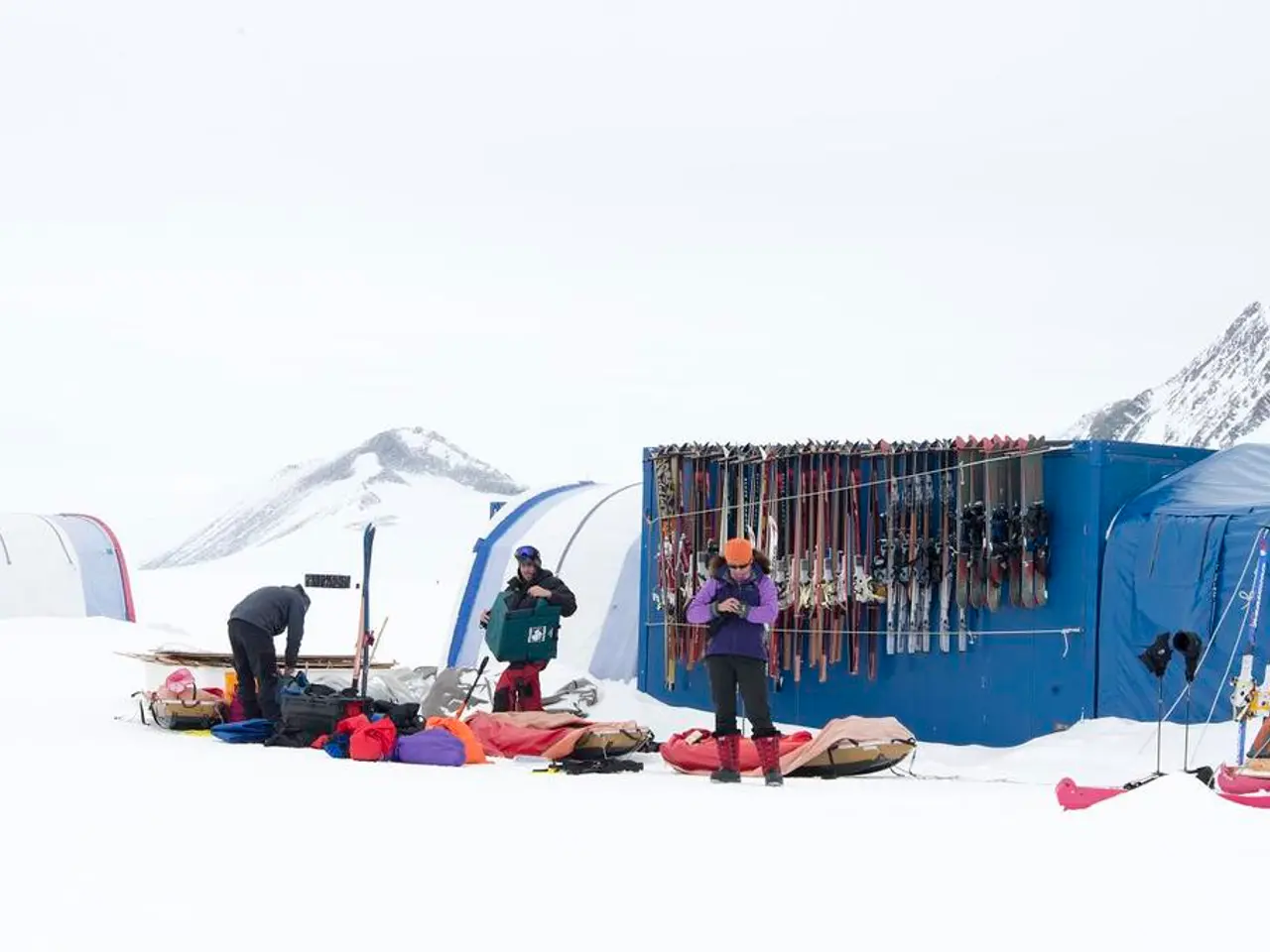Essential Strategies for Maintaining Hydration During Winter Camping: Crucial Hydration Guidelines and Necessary Equipment
Winter camping can be a magical experience, immersing oneself in the serene beauty of snowy, tranquil environments. However, it's essential to prioritise hydration, even in cold weather, as the body still loses fluids and requires consistent hydration for energy, physical performance, and cognitive function.
Here are key strategies to maintain hydration in winter conditions:
1. Carry enough water: Aim to carry about 1 liter of water for every 2 hours of hiking, adjusting for your activity level and conditions. Even in cold weather, your body needs consistent hydration.
2. Prevent water freezing: Use insulated water bottles or sleeves, keep bottles tucked inside your clothing or sleeping bag at night, or carry water in insulated containers. Some winter campers warm their bottles near a heat source before drinking.
3. Drink warm fluids: Hot teas, broths, or warm water can help maintain your body temperature and encourage drinking.
4. Hydrate regularly: Cold temperatures suppress the thirst reflex, so make a conscious effort to drink fluids frequently, even if you don’t feel very thirsty.
5. Balance hydration with nutrition: Eating water-rich foods like fruits or soups helps, and consuming enough calories supports fluid balance.
By combining these approaches—adequate water carrying, preventing freezing, regular drinking, and nourishing your body—you can stay well hydrated and safe during winter camping adventures.
Stews or soups can be great sources of hydration, and adding extra water or milk to dehydrated meals can make them more satisfying and hydrating. Hydration packs with insulated tubes can keep the user hands-free, and electrolyte tablets can enhance hydration and replenish essential minerals lost through sweat, even in the cold.
In extreme cold, make it a habit to drink regularly, even if you don't feel thirsty. Symptoms of dehydration in cold weather include dry mouth and throat, fatigue, dizziness, dark urine, and impaired balance and coordination. Opt for hot drinks with low caffeine to stay warm and hydrated, like black tea or pu’er tea.
Melting clean, white snow for drinking water is a practical method for gathering water in cold environments. Always ensure the snow is clean and avoid consuming snow from polluted areas. Apps like AllTrails can help find trails with water sources.
Remember, proper preparation is essential for avoiding hydration issues on a winter camping trip. Check the weather and plan the route with hydration in mind. A single-wall titanium water bottle with a thermal carry sleeve is an excellent choice for moderately cold days, while a thermos flask is a must-have for freezing temperatures, as it keeps drinks warm for hours.
The CamelBak SnoBlast is a winter-specific water bottle designed for winter sports, featuring insulated tubing to prevent freezing. Fresh fruits like apples, oranges, and berries can supplement water intake during winter camping, and freeze-dried fruits are lightweight and easy to pack, making them a good choice for winter camping snacks.
Winter camping offers a unique and enchanting experience, but it's crucial to prioritise hydration to ensure a safe and comfortable adventure. By following these tips, you'll be well-prepared to enjoy the beauty of winter camping while keeping your body well-hydrated.
[1] https://www.rei.com/learn/expert-advice/hydrate-hiking.html [2] https://www.rei.com/learn/expert-advice/winter-camping-stoves.html [3] https://www.rei.com/learn/expert-advice/winter-camping-tips.html [4] https://www.rei.com/learn/expert-advice/winter-camping-gear.html [5] https://www.rei.com/learn/expert-advice/winter-camping-nutrition.html
- To ensure a consistent hydration level during winter camping, consider carrying a titanium water bottle to keep your drink warm.
- For health-and-wellness and fitness-and-exercise purposes, it's advisable to use a hydration pack with insulated tubes to keep the water source close while engaging in outdoor-living activities.
- Incorporate camping cookware like stews or soups into your meals as they can contribute to hydration, especially when extra water or milk is added to dehydrated meals.
- The lifestyle of winter camping necessitates the use of appropriate equipment such as home-and-garden items like thermal carry sleeves to protect your water bottles from freezing in moderately cold temperatures.




